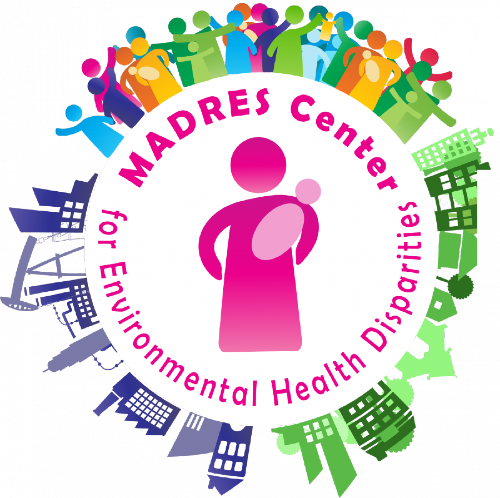
A new research article published in May 2019 provides an in-depth overview of the study design, protocol, and profile of our Maternal And Developmental Risks from Environmental and Social Stressors (MADRES) pregnancy cohort.
The full text of the article and more information can be found here.
The overarching goal of the “Maternal And Developmental Risks from Environmental and Social Stressors (MADRES)” cohort study is to better understand the increased risk for childhood obesity and maternal obesity outcomes among underserved women and children in Los Angeles.
The burden of childhood and adult obesity disproportionately affects certain racial and ethnic groups and groups with lower income and education levels. These same groups are often disproportionately affected by environmental pollution. Pregnancy is a critical developmental period where maternal environmental exposures and stress may have significant impacts on infant and childhood growth as well as the future health of the mother.
The ongoing MADRES study is a prospective pregnancy cohort of 1000 women-child pairs in Los Angeles, CA. Enrollment in the MADRES cohort is initiated prior to 30 weeks gestation from partner community health clinics in Los Angeles. Cohort participants are followed through their pregnancies, at birth, and during the infant’s first year of life through a series of in-person visits with interviewer-administered questionnaires, anthropometric measurements and biospecimen collection as well as telephone interviews conducted with the mother.
In addition to describing the study design of the cohort, this newly published study provides an overview of the cohort characteristics for 291 participants who have delivered their infants, out of 523 participants enrolled in the study from November 2015 to October 2018 from four community health clinics in Los Angeles.
“Future results from the MADRES cohort could be used by community organizations, policy makers, health providers, to better understand the risk of chemical exposures during pregnancy as well as the importance of psychosocial stress on important health outcomes in women and children,” said lead author Tracy Bastain.
Funding
This work was supported by the Maternal and Developmental Risks from Environmental and Social Stressors (MADRES) Center (grant #s P50ES026086, 83615801–0) funded by the National Institute of Environmental Health Sciences, the National Institute for Minority Health and Health Disparities and the Environmental Protection Agency; the Southern California Environmental Health Sciences Center (grant # P30ES007048) funded by the National Institute of Environmental Health Sciences, and the Lifecourse Approach to Developmental Repercussions of Environmental Agents on Metabolic and Respiratory health (LA DREAMERs) (grant #s UH3OD023287) funded by the National Institutes of Health Office of the Director ECHO Program.